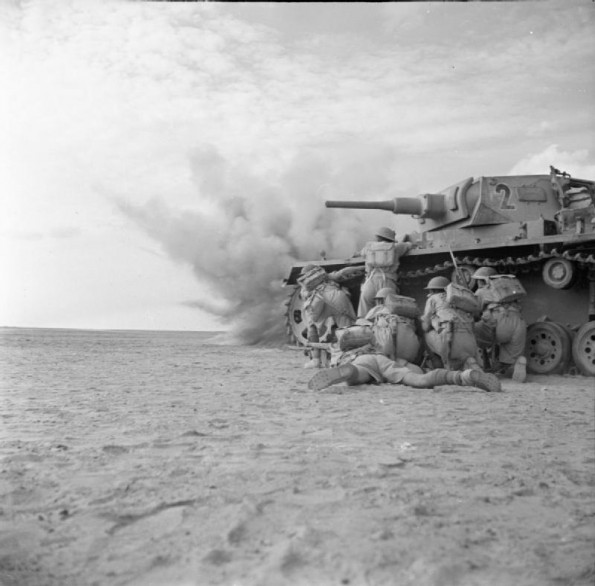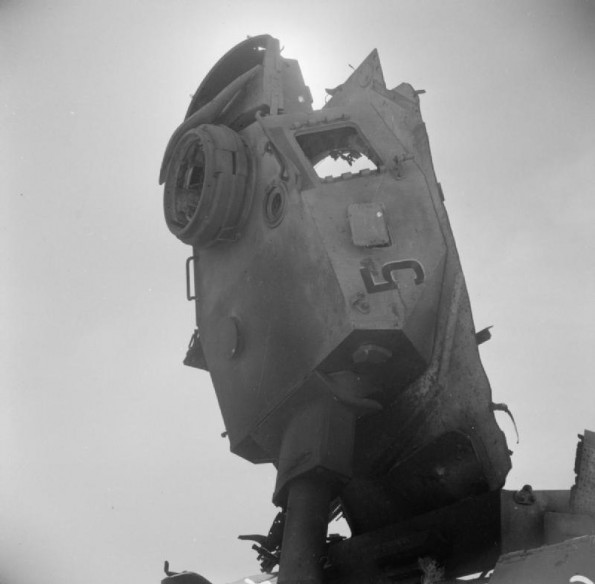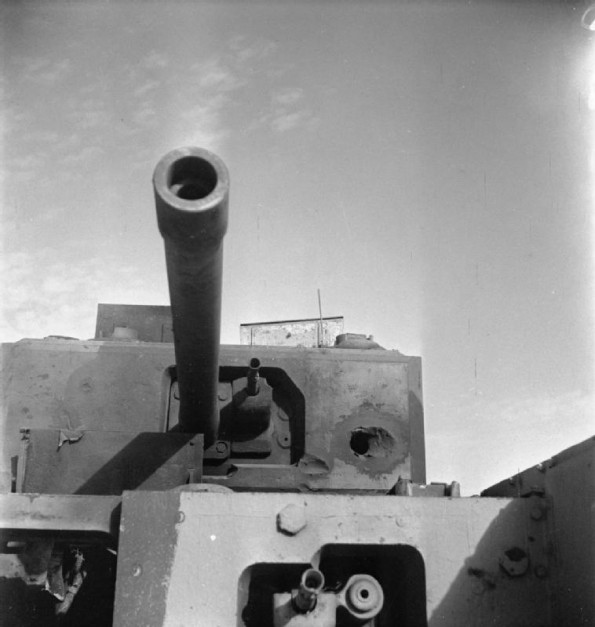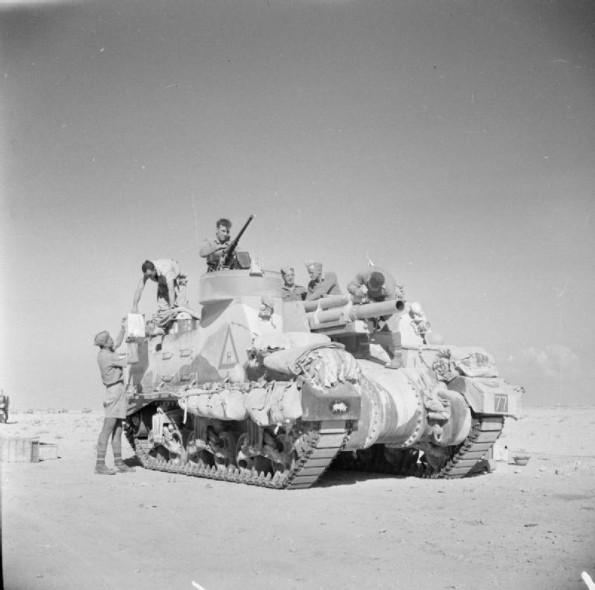Air Operations, Bismarcks
B-25s from the V Bomber Command's 38th Medium Bomb Group attack a Japanese convoy near New Britain.
[Air Operations, CBI
23rd Fighter Group P-40s down 3 Japanese fighters and 2 bombers over and near the airfield at Kweilin, China between 0845 and 0855 hours.
[Air Operations, East Indies
22nd Medium Bomb Group B-26s attack Dili, Timor.
[Air Operations, Egypt
- 40 12th Medium Bomb Group B-25s directly support attacks by a British 8th Armu armored division as well as attacking German Army tanks and troops across a broad segment of the battle area.
- 57th Fighter Group P-40s also support 8th Army ground troops as well as destroying 7 Axis aircraft on the ground.
Air Operations, Libya
376th Heavy Bomb Group B-17s attack shipping and port facilites at Tobruk. Hits are claimed on 2 Axis merchantmen, and fires are started ashore that will burn for two days.
[Air Operations, Mediterranean
The Eastern Air Command of the RAF is formed at Gibraltar to support the British 1st Army during Operation TORCH.
[Air Operations, New Guinea
V Bomber Command B-17s attack Japanese Navy shipping near Buna.
[Air Operations, Solomons
While attempting to attack Japanese troop-carrying destroyers off Cape Esperance during the evening, all 3 Cactus Air Force SBDs are lost in bad weather.
[Battle of El Alamein
At 1:00a.m. The XXX Corps of the British 8th Army launches the opening attacks of Operation SUPERCHARGE
code-name for the breakthrough offensive. Under cover of a tremendous artillery barrage the New Zealand 2nd Div opens a new corridor through the enemy minefields, allowing the 9th Arm Bde to pass through and establish a bridgehead beyond a track that goes south from Rahman. Axis anti-tank batteries, from 15th Pzr and later joined by 21st Pzr, wreak havoc among the British brigade's tanks and destroy about 75% of them, but they cannot drive the British back behind the minefields. The X Corps sends its tanks to help while the British 1st Arm Div is engaged in fierce fighting near Tell el Aqqaqir, west of Kidney Ridge. By evening Rommel has only about 35 tanks in action with little ammunition and less fuel. He therefore signals to Hitler that he cannot prevent a breakthrough and must withdraw.
|
|
2 squadrons of armored cars and carriers of the Royal Dragoon Guards carry out a 4-day raid behind Rommel's lines destroying 200 vehicles, cutting telephone lines and capturing several hundred Italians at a cost of 3 killed and 12 wounded.
|
|
Matilda Scorpion Flail Tanks |
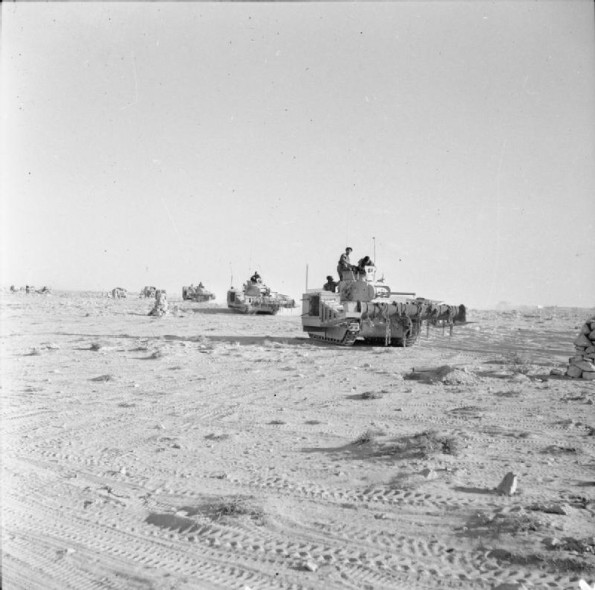 |
Battle of the Atlantic
U-518 sinks 2 iron-ore ships in Conception Bay, Newfoundland.
Freighter SS Rose Castle |
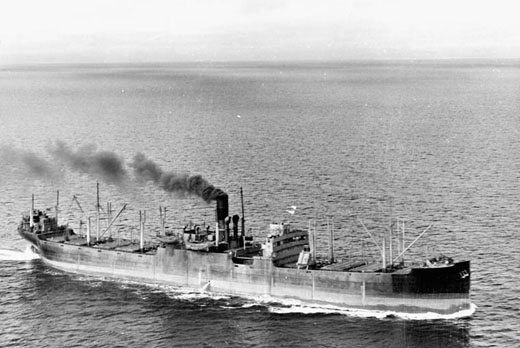 |
Eastern Front
SOUTHERN SECTOR
Fighting is renewed in the Caucasus as the 1st Panzer Army launches an attack toward Ordzhonikidze. Lead units of the III Panzer Corps are only 5 miles from the town, but face stiffening Soviet resistence. The first winter snows begin to fall, heralding the onset of another dreaded Soviet winter.
Defending the 'Red October' Factory |
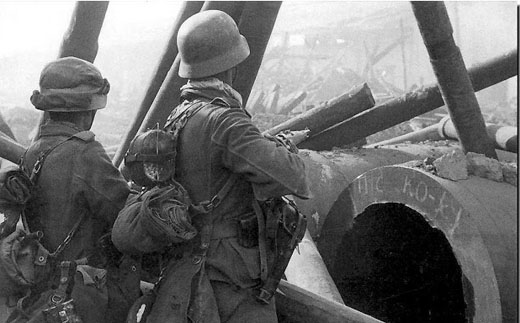 |
Guadalcanal
The 5th Marines envelops the enemy on the coast at Point Cruz. In the morning Col Edson commits the reserve 3rd Battalion to assist the 1st Battalion on the right. The 3rd Battalion joins the 1st Battalion in the coastal battle east of Point Cruz while the 2nd Battalion, on the left, drives north to the coast west of Point Cruz and turns east, trapping the enemy. One Japanese stronghold west of Point Cruz stops the marines. Using a 170-mm gun, 6 37-mm guns and numerous machine guns and taking most of the day, the marines finally dislodge the Japanese. During the afternoon the 2nd Marines, less the 3rd Battalion, moves forward on the left of the 5th Marines to continue the westward push the next day. Stores, ammunition, and 1 Army and 1 Marine Corps 155-mm gun battery arrive at Lunga Point. The 2 batteries are the heaviest US artillery to reach the island and the first capable of countering enemy fire effectively. Expecting a Japanese landing in early November at Koli Point east of the Lunga perimeter, the 2nd Battalion, 7th Marines, under Lt-Col H. H. Hanneken, is ordered to march to Metapona River, about 13 miles east of the Lunga. By nightfall, the battalion has set up defensive positions east of the Metapona's mouth near the village of Tetere.
The Cactus Air Force continues giving ground support. 2 planes are lost in operational accidents. 3 dive bombers are sent out seeking a reported destroyer, but do not return. Another dive bomber is sent seeking a destroyer at 2130. It also does not return.
About 2200 1 Japanese cruiser, 1 transport and 3 destroyers land supplies and about 1,500 soldiers from the 230th Infantry at Gavaga Creek, about 1 mile east of Hanneken's position. The Japanese orders are to land, join Shoji's force in the vicinity of Koli Point, and build an airfield. Because of a radio failure, Hanneken is unable to inform division headquarters of the situation.
[New Guinea
After the long campaign in the Owen Stanley Mountains, Kokoda is recaptured by men of the Australian 25th Brigade. With possession of the Kokoda airstrip it will now be possible to ease the strain on the men by supplying them by air rather than having everything carried up to Kokoda over the terrible switchback terrain of the trail. The Allies are preparing for action. Piecemeal movement by night of the 128th Infantry, US 32nd Division, less elements still at Port Moresby, by lugger from Wanigela to Pongani and Mendaropu is completed by this time and supplies are being accumulated. MacArthur intends to open the attack on the Japanese beachhead in the Buna-Gona area on November 15th.
[Pacific
The US submarine Seawolf (SS-197) sinks the Japanese water tender Gifu Maru (2933t) west-southwest of Cape San Augustin, Mindoro, Philippines.
[